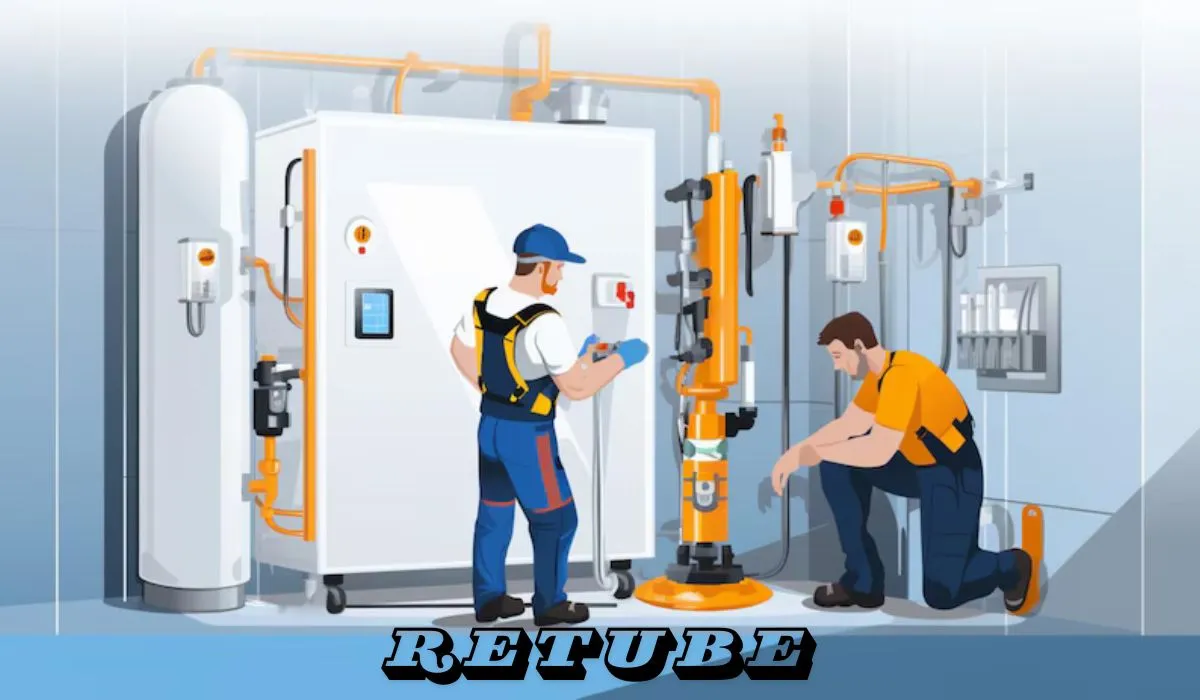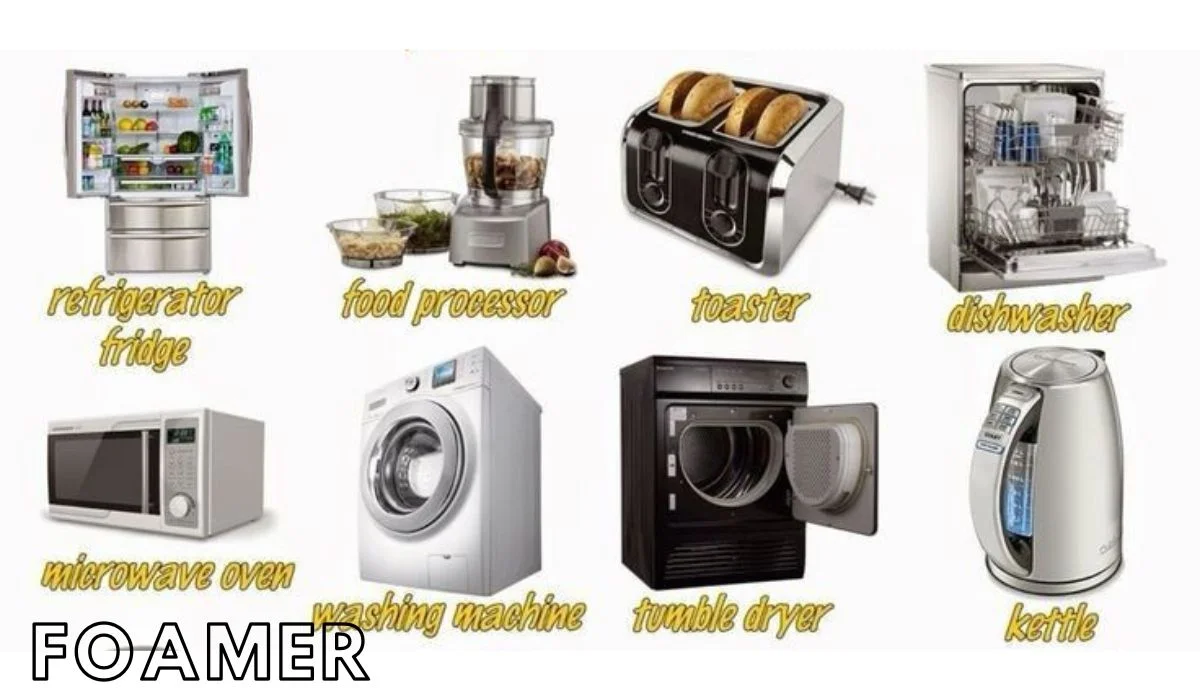Retubing is a fascinating concept that plays a vital role in multiple industries, especially in engineering, power generation, and firearm maintenance. But what exactly does it mean to “retube,” and how does this process benefit various types of equipment? In this article, we’ll dive deep into the meaning of retubing, its applications, and how to use this term in a sentence correctly.
Understanding the Concept of Retube
What Does “Retube” Mean?
The term “retube” refers to the process of equipping a device—such as a gun or a boiler—with new tubes. It typically involves removing old or worn-out tubes and replacing them with new ones, which restores the efficiency and function of the equipment. Retubing is most commonly associated with large-scale machinery like boilers, though it can also apply to other devices such as firearms.
You Might Also Like: The Nissan K24 Propane Pressure Sensor : A Comprehensive Guide
Origins and Etymology of “Retube”
The word “retube” is derived from the prefix “re-” meaning “again,” and the noun “tube.” It literally means to tube something again. The term has grown in usage, especially in technical and engineering contexts, reflecting its specific applications in maintaining machinery.
The Importance of Retubing in Various Industries
Retubing in Engineering and Manufacturing
In industries where large machinery is crucial to operations, retubing is an essential part of maintenance. By replacing worn-out tubes, equipment can run efficiently without needing a full replacement. Retubing is both cost-effective and sustainable, making it a preferred choice in industries like manufacturing.
Applications of Retube in the Power Industry
Power plants frequently rely on retubing, especially in boilers and condensers, to ensure uninterrupted energy production. A boiler with deteriorated tubes can lose efficiency, increasing fuel consumption and operating costs. Retubing restores its performance and extends its operational life.
Retubing Boilers and Pressure Vessels
Why Boilers Need Retubing
Boilers are a key part of many industrial processes, and over time, the tubes inside them degrade due to heat, pressure, and corrosion. Retubing a boiler is necessary to maintain its optimal performance, ensure safety, and extend its usable life.
Benefits of Retubing Boilers for Efficiency
A boiler can potentially regain a significant portion of its lost efficiency when retubed. New tubes allow for better heat transfer, reducing fuel consumption and lowering operational costs. This also contributes to fewer emissions, making the process environmentally friendly.
Retubing in the Context of Firearms
The Process of Retubing Guns
Firearms can also undergo retubing, particularly older models that experience barrel wear over time. Retubing a gun involves replacing the old, worn barrel with a new one, ensuring that the firearm can function safely and accurately.
Trending: Winsil : The Ultimate Silicone Adhesive Sealant for Modern Applications
How Retubing Impacts Firearm Longevity
By replacing a gun’s barrel, retubing can extend the firearm’s life and restore its performance. This is especially important for collectors of historical firearms or those who use their guns regularly.
How Retubing Works: Step-by-Step Guide
Initial Inspection and Assessment
Before retubing begins, professionals thoroughly inspect the equipment to assess the condition of the tubes. This allows for the identification of any issues and ensures that retubing is the right course of action.
Removal of Old Tubes
After the assessment is completed, old tubes are meticulously removed using specialized tools to accommodate various tube sizes and shapes.
Installation of New Tubes
The old tubes are removed and replaced with new ones, following precise guidelines to ensure a proper fit and optimal function.
Final Testing and Quality Assurance
Once the retubing process is complete, the equipment undergoes a series of tests to ensure that it’s functioning correctly. This step is crucial for ensuring safety and efficiency.
Tools and Equipment Used in Retubing
Common Tools for Retubing Boilers
Boiler retubing often requires specialized tools like tube expanders, hydraulic tube pullers, and rolling machines to remove and replace tubes without damaging the boiler itself.
Advanced Machinery for Retubing Firearms
In firearms, precision tools are needed to ensure the new barrel fits seamlessly into the firearm’s existing frame. Lathes and reamers are often used to achieve the necessary precision.
Advantages of Retubing Over Replacement
Cost Efficiency of Retubing
Retubing is far more affordable than replacing an entire boiler or firearm. The cost of new tubes is typically a fraction of the cost of buying new equipment, and the labor involved is less intensive.
Environmental Benefits of Retubing
Retubing also has environmental advantages. Extending the lifespan of existing equipment reduces waste and the need for new machines, thus reducing the overall environmental footprint.
Challenges in the Retubing Process
Potential Issues in Retubing Boilers
While retubing is an effective solution, it isn’t without its challenges. One of the most common issues is corrosion in boiler walls, which can complicate the retubing process.
Common Problems Faced in Retubing Guns
In firearms, the main challenge lies in ensuring that the new barrel is perfectly aligned with the existing frame. Any misalignment can affect the gun’s accuracy and safety.
Safety Considerations During Retubing
Ensuring Safety in Boiler Retubing
Safety is paramount during boiler retubing. High-pressure systems like boilers pose significant risks if not handled correctly, so technicians must follow strict safety protocols to avoid accidents.
Best Practices for Retubing Firearms
Retubing firearms also requires careful handling to prevent accidents. Gun owners should always work with professional gunsmiths to ensure that the retubing process is done safely and correctly.
The Role of Retubing in Maintenance Strategies
Preventative Maintenance and Retubing
Retubing is often part of a broader maintenance strategy aimed at preventing equipment failure before it occurs. By regularly inspecting and replacing tubes, companies can avoid costly breakdowns and downtime.
How Retubing Extends the Life of Equipment
The primary benefit of retubing is that it extends the life of equipment. Whether it’s a boiler or a firearm, retubing allows owners to continue using their equipment
long after it would otherwise have worn out.
Industries That Benefit Most from Retubing
Power Generation Industry
In power plants, retubing is a key maintenance practice. By regularly retubing boilers and condensers, these facilities can maintain high efficiency and reduce the risk of equipment failure.
Manufacturing and Heavy Industries
Manufacturing companies also rely on retubing to keep their machinery in top condition. Whether it’s a boiler, furnace, or other heavy equipment, retubing helps these companies maintain their operations without interruption.
Practical Examples of Retubing in Action
Retubing in Power Plants
In power plants, boilers are often retubed to ensure continuous operation. This process can significantly reduce fuel consumption and emissions, making it both cost-effective and environmentally friendly.
Retubing Historical Firearms
Collectors of historical firearms often retube their guns to preserve their function without compromising their original design. Retubing allows these collectors to maintain the value and usability of their firearms.
Future Trends in Retubing Technology
Innovations in Boiler Retubing Techniques
As technology advances, so do retubing techniques. New materials and methods are being developed to make the process faster, safer, and more efficient, especially in large-scale industries like power generation.
Advancements in Gun Retubing
In the firearms industry, retubing technology is also evolving. Precision tools and advanced materials are making it easier to retube firearms without affecting their accuracy or safety.
How to Use Retube in a Sentence
Proper Usage of the Term “Retube”
To use “retube” correctly in a sentence, it should refer to the process of replacing old tubes in equipment. The word can function as both a verb and a noun, depending on the context.
Examples of Retube in Sentences
- “The power plant needed to retube its boilers to restore efficiency.”
- “After years of use, the gun required a retube to ensure safe operation.”
- “Retubing the old machinery saved the company thousands in replacement costs.”
Conclusion
In conclusion, retubing is a vital process in many industries, helping to extend the life of equipment and maintain operational efficiency. Whether it’s retubing boilers in power plants or firearms in collectors’ hands, the benefits of this practice are undeniable. As technology continues to evolve, we can expect even more advancements in the world of retubing, making it an even more cost-effective and environmentally friendly option.
FAQs
What is the Cost of Retubing a Boiler?
The cost of retubing a boiler can vary depending on the size of the boiler and the extent of the damage. On average, retubing can cost anywhere from $10,000 to $50,000.
How Long Does the Retubing Process Take?
The duration of the retubing process is contingent upon the type of equipment being utilized. For example, retubing a boiler can take several days, while retubing a firearm may only take a few hours.
Can Retubing Extend the Life of Any Equipment?
Yes, retubing can extend the life of a wide range of equipment, from boilers and pressure vessels to firearms and heat exchangers.
What Types of Firearms Benefit from Retubing?
Older firearms, especially those with worn-out barrels, can benefit from retubing. This process restores the firearm’s functionality and extends its life.
Is Retubing Environmentally Friendly?
Yes, retubing is an environmentally friendly option because it extends the life of existing equipment, reducing the need for new materials and lowering waste.




